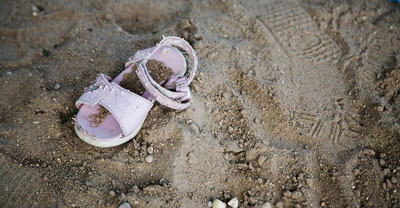
By Stacy M. Brown, NNPA Newswire Senior National Correspondent@StacyBrownMedia
According to the most recent statistics from the Federal Bureau of Investigation, approximately 40 percent of the 425,000 missing children in America are Black.
Specifically, 156,000 African American children under 18 are missing and unaccounted for.
The National Newspaper Publishers Association (NNPA) continues its series on the plight of missing African American girls and boys who have disappeared.
Throughout the series, which began in 2019, a common theme emerged: Black children who go missing receive far less media coverage and police priority than White children.
“For preliminary matters, the media reports what police report or what is trending and deemed newsworthy,” Sherri Jefferson of the African American Juvenile Justice Project (AAJJP) told NNPA Newswire this week.
“Therefore, Black children are less likely to get Amber Alerts or other Alerts, including the ‘America’s Missing: Broadcast Emergency Response,” Jefferson noted.
Founded in 2007, the AAJJP is a program that focuses on community ac-countability and responsibility, youth leadership, and legislative initiatives for juvenile justice transformation.
Jefferson added that AAJJP re-cognizes that Black children in America leak or SEEP – Systemic. Endemic. Epidemic. Pandemic – through holes of racism, classism, and capitalism.
AAJJP’s mission is to provide pro-grams and services for social justice and reform, engaging the African American community, the school system, and the child welfare and juvenile justice system.
Jefferson noted several other factors that explain why missing people of color still get little attention in the media and police. They include how police and families define missing children.
“Often, police do not inform the Black community of the process of reporting missing people,” Jefferson remarked. “Therefore, children are generally defined as a runaway and not missing.”
Runaways are not given priority.
Throughout the United States, authorities issue warrants for runaways who face formal charges when located.
Further, Jefferson added that police “misinform parents and families that this process will speed up locating missing persons and that is false and damaging to the missing person because it criminalizes their victimization plus it leads to police and system involved process.”
“Children are detained and subject to further abuse,” Jefferson declared.
In many cases, when a child goes missing, parents are told to delay reporting for 24 hours.
Jefferson called such a delay a denial of justice that [could] lead to the death of those missing.
“Police misinform or misuse information provided by the families to include an emphasis on depression, behavior or conduct disorders, and isolation,” Jefferson demanded. “These factors lessen the chance of defining the person as missing.”
Ultimately, the missing person is viewed through the lens of voluntarily being absent or willfully not wanting to be located, Jefferson added.
AAJJP officials also expressed concern about trafficking.
“Our children and young adults are often adulterated and are less likely seen as victims. We see this in addressing just US – Juvenile Urban Sex Trafficking in the United States – where Black, African American, and Afro Latinas are less likely seen as victims of kidnapping or missing by force or coercion.
Instead, they are perceived as willing participants engaged in sex for profit,” Jefferson said.
She said AAJJP implores communities of color to become proactive in searching for missing loved ones. For example, a parent or caregiver knows their loved one’s routine.
So, when a child does not report to school or return home after school, a search should begin immediately.
Jefferson offered that parents and caregivers consider adding GPS tracking devices via a cell phone, bracelet, watch or necklace, to their children and elderly parents.
“Call 911 to make an official, recorded, and documented emer-gency call,” Jefferson advised, noting further that all calls made to 911 are monitored and recorded, unlike non-emergency police station phone numbers.
“Respectfully, but vigorously request to file a missing person report. Do not suggest that they are missing due to mental health illness, which police prompt Black people to divulge to justify mis-sing persons,” Jefferson declared.
“While there could be a correlation, until it’s proven, just pursue it as a missing person. Make fliers with their photos and last known location and full descriptions of what they were wearing,” she continued.
AAJJP officials said it’s vital that parents know what their children are wearing each day.
They note that parents may leave for work before their child goes to school. In that case, Jefferson said parents should have their children send photographs or use facetime or a video device each morning.
She recommends using social media to post information and photos of anyone missing, using hashtags like #Breaking, #Missing, and tagging @MissingKids, @JeffersonandCo, @BlackGirlTragic, and @IHaveVanished.
Jefferson said it also helps to add media outlets like @EbonyMag, @Essence, and @BlackPressUSA.
“Go door-to-door. Question friends,” Jefferson said. “This is why parents need to get a list of names and contact information of their children or loved ones’ friends and associates.
“Retrieve phone records – this is why it’s important to put all cellular phones in the name of a parent to avoid needing a court order or warrant to retrieve records and creating delays – and know their social media account handles to search for information.”
Jefferson demanded that communities must embrace the “each one, teach one to reach one” approach.
“We cannot go it alone. Why are we missing? Our community lives in isolation with a no-snitch, no one sees or hears anything attitude,” Jefferson said.
“It’s hurting our community. Our children and families are suffering. Hence, there is a big difference between a snitch and a good Samaritan.”
If every major television network, cable outlet, news program, and social media feed posts a picture of a missing person at the bottom of the screen and the Department of Transportation uses digital billboards to showcase missing people 24/7, 365, that would help locate the missing.
“What if our Black magazines, both digital and print, would do a pull-out section every issue? We would find our missing people.”


Be the first to comment